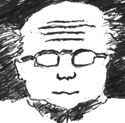
PROFESSOR B: INDEX

Daily Telegraph
Monday 14 February 2000
Scientists 'asked to fix results for backer'
By Liz Lightfoot, Education Correspondent
News - Institute of Professionals, Managers and Specialists
ONE in three scientists working for Government quangos or newly privatised
laboratories says he
has been asked to adjust his conclusions to suit his sponsor.
Contracting out and the commercialisation of scientific research are threatening
standards of
impartiality, scientists claim. The survey was conducted by the union representing
research
scientists, which is campaigning against further privatisation of public
laboratories.
The Institute of Professionals, Managers and Specialists says that public
safety could be harmed by
the Government's plans to bring private funding into the National Air Traffic
Services and the
Defence Evaluation and Research Agency. Privatisations over the last few
years have included the
Radio Chemical Centre, now Nycomed Amersham Laboratories, and the Atomic
Energy
Authority, which trades as AEA Technology.
Charles Harvey, the institute's spokesman, said an increasing number of
scientists had privately
raised concerns with the union so it had decided to include a question
about the influence of
sponsors in a survey about pay and conditions. Thirty per cent of the 500
respondents said they
had been asked to tailor their research conclusions or resulting advice.
The figure included 17 per cent who had been asked to change their conclusions
to suit the
customer's preferred outcome, 10 per cent who said they had been asked
to do so to obtain further
contracts and three per cent who claimed they had been asked to make changes
to discourage
publication.
"Some were working for quangos and some for fully privatised laboratories,"
said Mr Harvey.
"The piper is calling the tune and it raises worrying issues. We have seen
the BSE crisis, food
scares and the the GMO debacle and the public is losing confidence in Government
as an
independent, fair-minded arbiter."
Scientists should be given the right to publish their research instead
of having to get permission
from the sponsors, he said. Concern over pressure brought to bear on medical
researchers has
prompted the British Medical Journal to insist that authors declare their
source of funding and
whether they have any "competing interests".
They must fill in a form declaring, for example, whether they have been
paid to lecture or attend
symposiums by companies connected with their work, or hold shares in them.
Richard Smith,
editor of the journal, said the policy had been formally introduced because
of evidence that the
authors of reviews of research evidence were influenced by those who commissioned
them to do
the work.
Research into the funding of 10 papers on the alleged blood clotting risk
of the third generation
contraceptive pills found those funded by the pharmaceutical industry had
discovered no risk,
whereas those with other sources of funding claimed there was, he said.
Recent American research had also discovered links between studies which
found passive smoking
was not dangerous and the tobacco industry. "These competing interests
are very important," said
Dr Smith. "It has quite a profound influence on the conclusions and we
deceive ourselves if we
think science is wholly impartial."
....................................................................................................................................................................................................
IF YOU WOULD LIKE TO PROTEST AT THE INDUSTRIAL ALIGNMENT OF INDEPENDENT
SCIENCE: CLICK HERE
